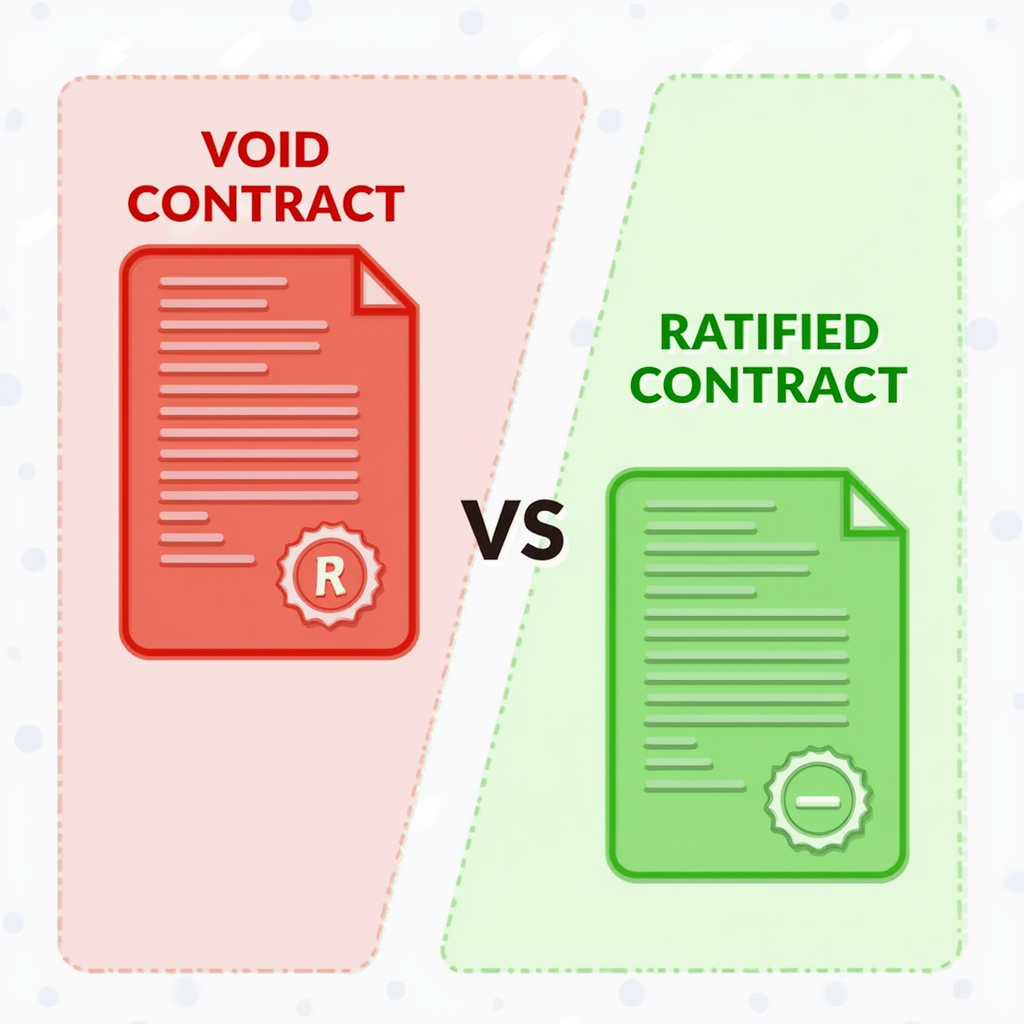This article is written by Adv. Devshree Dangi and it talks about the pre-incorporation contracts and their enforceability under various Indian laws. This article lays down the provisions of the Specific Relief Act, 1963, the Indian Contract Act, 1872 and the Companies Act, 2013 regarding pre-incorporation contracts in India while also talking about the law of agency and its significance in pre-incorporation contracts. It discusses some of the important judgments from the Supreme Court and the High Courts. It also provides some of the important clauses of pre-incorporation contracts.
Table of Contents
Introduction
Before even starting the process of creating a company, there are several crucial steps that one may have to complete before the actual registration of the legal entity. Managers and promoters usually consider obtaining contracts or setting up finances or services vital to future business. It is done to ensure that when the company is legally formed it starts to operate efficiently.
However, this poses the legal questions regarding the positions of such contracts that were made before the formation of the company. Some of the legislation such as the Specific Relief Act, 1963, the Indian Contract Act, 1872 and the Companies Act, 2013 gives the pre-incorporation contracts a legal recognition to some extent.
However, there are specific conditions laid down under the provisions of the said laws regarding the enforcement of the pre-incorporation contracts against the company. Until the company is legally incorporated, the promoters are responsible and liable for the contracts. Once the company is formed and registered, it has the right to adopt or ratify the contracts made prior to its incorporation.
Meaning of pre-incorporation contracts
A pre-incorporation contract is an agreement that promoters enter into before the incorporation of the company. At this time, the company has not yet been formed and, consequently, it can be considered that it does not yet exist. For the company to be formed, it has to be incorporated as per Section 7 of the Companies Act, 2013 and registered as a company with the Registrar of companies under the provisions of the Companies Act, 2013 to make it a legal entity.
Still, promoters tend to arrange important related factors such as securing contracts, raising capital, leasing property, hiring personnel, obtaining licences, and protecting intellectual property and commitments for the company to operate smoothly in the future.
These contracts, however, are normally regarded as legally void since the company is not a legal entity yet. However, through legal statutes, such as the Specific Relief Act,1963, the contract once signed can always be implemented once the company has been incorporated so that the initial agreements which were entered are adhered to.
Background of pre-incorporation contracts
In the course of company formation, pre-incorporation contracts are legal agreements entered before the formation of the company. They are used in making various necessary agreements, which are important in the setting up of the company.
Initially, these contracts posed an issue since, under common law, a company that has not been formed could not enter into contracts on its behalf. This remained a problem for promoters especially when they had to look for funds and make initial investments before the company had been established. At first, these contracts were considered invalid and could not be enforced by law.
Development of corporate laws concerning pre-incorporation contracts
Corporate laws in India have evolved enough to effectively handle the challenges posed by pre-incorporation contracts. The Companies Act, 2013 and earlier Acts like the Companies Act, 1956 brought provisions that permit companies to adopt and ratify formal contracts and agreements arrived at before the companies’ incorporation. This evolution was intended to reduce the existing difference between the legal rules and the real-world requirements for promoters.
Furthermore, the Specific Relief Act, 1963 has been helpful to some extent since it grants relief for the enforcement of contracts made before incorporation in certain circumstances, which will be further explained later in this article. This Act evolved from early common law that largely considered such contracts as unfair and unenforceable and provided the legal basis for considering such contracts as enforceable.
Legal provisions regarding pre-incorporation contracts
The Indian legal system provides various statutes about pre-incorporation contracts. Here is a detailed examination of the relevant provisions:
Specific Relief Act, 1963
Section 15(h) of Specific Relief Act
This Section provides the remedy for the specific performance of a contract, under which a party is required to fulfil the contractual terms without any compensation in the form of money or otherwise.

For a contract to be enforceable under this section, the company ought to have been formed, but the contract that was entered should have been assumed by the company when it was formed. Simply, the contracts entered into by the promoters are legally enforceable under this Section if they are adopted by the concerned company post-incorporation.
Notice of adoption should also be given to the contracting party in which it affirms the company’s legal obligations as per the contract. This enables the company to ratify contracts entered into by promoters before the company’s formation, where the contract is beneficial to the company, and where the adaptation has been properly notified.
Section 19(e) of Specific Relief Act
This provision also brings the right of specific performance for the third party. It permits a third party to sue on a pre-incorporation contract that was incorporated in the company’s articles of association (AOA) and which the company accepted after it was formed. This provision was an exception to the general common law rule that a contract formed before incorporation was unenforceable.
Thus, by including the said contracts in the articles of association, and formally adopting them, the companies will be able to formally validate and enforce the said agreements, thus guaranteeing third parties legal certainty.
Companies Act, 2013
Section 35 of Companies Act
This provision gives promoters the liability for any statements that are considered false in the prospectus and that would lead investors to subscribe to the company’s securities. If such statements are deemed to be false or misleading, the allotment of securities may be considered null and void, and promoters may suffer losses, including legal claims for damages or compensation. This section is very useful in safeguarding shareholders’ interests and ensuring that pre-incorporation contracts are accurately reflected in the corporate documents.
Section 447 of Companies Act
This Section provides that if fraud is brought to light while a company is winding up, and it involves the incorporation or promotion of the company, promoters as well as other officers or directors are deemed liable for the fraud. It protects the company against fraudulent transactions that may have taken place before the company was incorporated and also ensures that the promoters who engage in fraudulent activities can be held responsible.
Indian Contract Act, 1872
Section 10 of Indian Contract Act
This Section provides a specification of the various aspects of the formation of a contract. It states that a contract is valid and legally enforceable only if it is made with free consent, lawful consideration, and lawful object. It also notes that any agreement held as being void by the law cannot be subjected to enforcement.
This provision lays the foundations for standard provisions that govern all contracts, including pre-incorporation contracts. It provides for the condition to be met by such contracts concerning basic contractual terms.
Section 23 of Indian Contract Act
According to this Section, the consideration of an agreement is lawful unless the consideration is prohibited by law, fraudulent, injurious to the person or property of another, or tending to immoral or against the public policy. It provides that contracts entered prior to incorporation cannot violate the legal requirements and the public policy and are thus effective in determining legal and ethical contractual rights.
Section 196 of Indian Contract Act
This Section allows the confirmation of an act carried by one person on behalf of another that he is authorised to act. Simply, this provision allows a person to approve an act done on their behalf by somebody else, even when that person is not authorised to do so. Once their act is approved by the person on whose behalf the act was done, it will be treated as if it was authorised from the beginning.
In that sense, it means that a company can approve contracts entered before its creation after formation.
However, this ratification process must cover all the contract terms and not just some parts of the contract. This provision enables companies to confirm and implement pre-incorporation contracts hence enabling contracts made before the formation of the company to be implemented after the creation of the company.
Section 230 of Indian Contract Act
This Section provides significant support to the idea that an agent, (promoter) cannot create or compel contracts on behalf of a principal (company) that has not been formed yet.
This principle implies that the contracts made before the formation of the company are not automatically enforceable against the company once it is formed unless affirmed. They establish the need to formally incorporate such contracts to give them force and effect that they are enforceable against the company.

Thus, these provisions altogether provide regulation of the pre-incorporation contracts in the framework of Indian legislation, underlining the necessity of adoption and confirmation to guarantee enforceability and to safeguard all parties’ rights.
Role of promoters in pre-incorporation contracts
In accordance with Section 2(69) of the Companies Act, 2013 a “promoter” is any person that is stated as such in the prospectus or included in the company’s annual return according to Section 92. It also embraces any person who directly or indirectly has power to do the management of the company’s affairs as a corporate body, share holder, a director or in any other capacity. Furthermore, any person whose counsel or directions is availed by Board of Directors is also taken to be a promoter in so far as he is not only lending a professional service.
Where pre-incorporation contracts are concerned, the role of promoters is critical since they represent an entity that is yet to be incorporated. The role of promoters is to secure some of the prerequisites for the future operation of the company like; signing of contracts, leasing of facilities, obtaining finance and acquiring essential resources. However, given the legal fact that a company cannot hold a contract at this stage, the promoters usually sign those contracts in their individual capacity.
Legal provisions regarding a pre-incorporation contract as well as the liabilities of promoters are fairly outlined in Sections 15(h) and 19(e) of the Specific Relief Act, 1963. According to Section 15(h), an agreement may be entered into on behalf of a company before the company comes into existence and the company can then ratify the agreement after it has come into existence.
Section 19(e) permits such contracts to be enforced against the company if the company confirms the contract after having been formed. Promoters (on behalf of the as yet non-existent company) will typically enter into these contracts though they remain personally liable for the contracts where the yet to be company does not adopt or ratify the contract once incorporated.
Therefore, these provisions allow the courts to uphold pre-incorporation contractual agreements, since promoters acting for the corporation do so with the capacity to have the company’s actions ratified.
However, it is for, and on behalf of the company that it will be the choice of the company to adopt or affirm such contracts as soon as it will be incorporated. Nevertheless, promoters are held legally responsible for the pre-incorporation contracts unless discharged by the third party or the ratification substitutes the promoter’s liability.
Responsibilities of promotors
Besides, promoters also have legal responsibilities which includes:
- Providing the company with a proper structure to start business ventures.
- Promoters have fiduciary responsibilities, including acting in good faith, as well as exercising care when dealing with the company’s affairs to avoid conflicts of interest.
- This is important in their duty to assist people to move from the business idea stage to a legally recognized and formal business.
- It is the duty of the promoters to disclose any information that is material to the decision of an investor, failure to which the promoters will be held liable for any losses to the company or shareholders.
Types of pre-incorporation contracts
Contracts binding on the promoters
These are agreements that are enforceable against the promoters. They are made at a time when the intended company has not yet been established but when the persons making the agreements are involved in forming the company. These contracts are entered into for the proposed company with it being a party in the same. However, since the proposed company was not a legal entity yet, its promoters are personally held responsible instead.
That is, for example, if the promoters enter into a lease agreement for office space for the future company, promoters will be liable for the obligations listed in the lease until the company is incorporated and approves the lease agreement. But if the company does not take up these responsibilities then the promoters are legally bound to third party claims.
Contracts subject to ratification by the company

Some of the contracts entered prior to incorporation are intended to be conditional and can be regarded as a subsidiary to the subsequent ratification by the company. These agreements are made based on the condition that, on the incorporation of the company, it will be bound by this contract and will take over the obligations agreed on herein.
For instance, where promoters enter into a purchase agreement for operating equipment that is necessary for the company, the agreement may contain a provision that the agreement will afterwards be approved by the company after its formation. These remedies are the promoter’s duties shift to the company upon its ratification of the contract and promoters are astoundingly free from several contractual obligations. Ratification is often completed by way of a formal resolution or other steps by the company.
Contracts that cease to exist upon incorporation
Some contracts entered into before incorporation are drafted in a manner that they dissolve as soon as the company is formed. These contracts are usually short-term contracts or even preliminary contracts intended to be replaced by a formal contract when the company is formed.
For instance, contractual arrangements which promoters enter into to organise a company for the provision of services vital at the formation stage may be unwound once the company is incorporated, and new contracts are entered into between the company and the service providers. It is a common practice that when entering into an incorporation, these contracts are brought to an end and as such, the promoters are not held liable for the terms of the agreement.
Doctrine of agency in pre-incorporation contracts
The doctrine of agency is one of the crucial concepts in contract laws under which a person/party, called an agent, works on behalf of another. With regards to pre-incorporation contracts, this doctrine bears a lot of weight to establish the capability of legal enforcement as related to contracts made by the promoters of the company but in the name of a company that is yet to be formed.
Understanding the doctrine of agency
According to the doctrine of agency, an agent is authorised to act on behalf of the principal and the principal shall be liable for the actions of the agent if such actions are within the purview of the agency. The agent’s authority can be:
- Actual authority: As specified by the principal.
- Implied authority: In that arising from the circumstance or business relationship between the agent and the principal.
- Apparent authority: When such actions by the principal make a third party reasonably understand that the agent represents the principal.
As in most agency scenarios the agent enters into contracts on behalf of the principal with the third parties where the agent has authority to do so.
Application to pre-incorporation contracts
In the context of the contracts made before the incorporation of a company, promoters are said to be the agents for the company regardless if it has not been incorporated yet. But, under the ambit of common law as well as the Indian Contract Act, 1872, such an entity cannot be said to have come into existence as a legal entity unless the company has first been incorporated.
As a result, a company cannot be a principal in an agency relationship before its incorporation, which presents quite a few issues, a few of which are discussed as follows:
Non-existence of principal
One major issue with pre-incorporation contracts is that when the contract is made, the company which would act as the principal doesn’t exist or is not legally formed. Thus, there is no such entity to be held responsible for the obligations arising out of the contracts during their execution. According to the doctrine of agency, an agent exercises powers that he holds on behalf of a principal who forms a legally recognizable entity.
The company does not legally exist until it is officially incorporated and therefore it cannot act as a principal in a contract. Hence while the promoter is legally able to enter into contracts in the name of the yet-formed company, in reality, the promoter is acting without a legal principle. This position tends to give rise to legal complexities because in most cases the promoter is unable to legally commit on behalf of an entity that is yet to be formed.
Therefore the contract will be seen as technically void where the company is concerned unless the company entered into, adopted or ratified it later. It also means that, for third parties dealing with the promoter, enforcement difficulties abound because the company cannot be liable or accountable for an undertaking entered into prior to its incorporation.
Ratification after incorporation
Since the company does not exist at the time of entering the pre-incorporation contract it cannot be bound. Thereby the only possibility of fulfilling the pre-incorporation contract is after ratification by the company. This process of ratification is central to an appreciation of how pre-incorporation contracts are viewed under the Doctrine of Agency and the Indian contract law.
Doctrine of ratification

Ratification is a legal process whereby a company approves a contract that was entered into by promoters before the company was formed. For ratification, the company must affirm the contract once it is incorporated. This means that the company must sign the contract or formally accept the contract’s provisions and be legally liable for them.
This process, therefore, entails making this acceptance known to the other party to the contract to signify that as far as the company is concerned it wants to be entitled to all the rights and assume all the obligations provided under the agreement.
Upon the contractual approval by the company, the company becomes legally liable for contractual obligations that were formerly a promoter’s duty. This action also serves to free the promoter from any legal responsibility that may be bound to the contract since the company is now directly answerable to the contract provisions. This is important as it transfers risk from the promoter to the company to shield the promoter from any legal consequences of the contract.
Section 196 of the Indian Contract Act, 1872 explains the doctrine of ratification where an act has been done and the person on whose behalf it has been done is not aware of it or has not agreed to it. This Section plays a vital role in any pre-incorporation contracts since it gives legal weight to actions that have been taken by the promoters on behalf of the company while it was still forging into existence.
From this Section, one is able to deduce that a company can ratify an act done by its promoters before its incorporation though this ratification has to encompass the whole contract and cannot be partial. This means that the company has to approve the whole contractual relationship in its entirety as it is, without approving only a particular clause or part of the overall contract.
The ratification must, however, be clear and should be communicated to the other contracting party in order to bind the company by the legal contract and to avoid scenarios whereby the company is overlooked by the other party on the conditions of the contract.
Therefore, post-incorporation ratification enables a company to accredit pre-incorporation contracts and take liability for the said contracts. It needs express agreement and notification to the party concerned, and as Section 196 of the Indian Contract Act, 1872 says, it has to be to the extent of the entire contract. This makes it possible for the company to ascertain and support contracts entered into by promoters to give the company a means of assuming contractual obligations previously undertaken by the promoters.
Promoters as fiduciaries
Pre-incorporation contracts can often involve the promoter as a fiduciary of the new company that he is incorporating. In this capacity, they have to always serve the company’s interests and not be involved in any self-serving behaviour. This fiduciary relationship further complicates the application of the doctrine of agency because:
- Duty to disclose: Promoters must fully disclose their interest in any contracts entered prior to the incorporation of the firm and more importantly the contracts have to be reasonable.
- Liability for breach: In cases where the promoters behave in a manner that is not in the best interest of the company or involved in self-serving actions are also subject to legal remedies by way of breach of fiduciary duty.
Judicial interpretation in India
There are many cases where the Indian courts have discussed the applicability of the doctrine of agency in regard to pre-incorporation contracts. The general legal rule is that a company cannot be held legally liable to honour a pre-incorporation contract unless it specifically adopts the contract.
The English case Kelner vs. Baxter (1866) LR 2 CP 174 is frequently referred to in India, where it was held that a company cannot affirm an agreement made prior to its incorporation because the company did not exist at the time of making the contract. Thus, the promoters were held personally liable for it.
Newborne vs. Sensolid (Great Britain) Ltd. (1954) 1 QB 45 is another case where the court stated that an unincorporated company cannot be a party to a contract further confirming the principle that promoters may be held personally liable for the contract unless the company confirms the contract after its incorporation.
In the case of Weavers Mills Ltd., Rajapalayam vs. Balkis Ammal and Ors. (1967), the question of law arose regarding consideration in pre-incorporation contracts before the Madras High Court. The case also revolved around the enforceability of pre-incorporation contracts and the legal responsibility of the company in connection with such contracts.

The facts of this case involved a contract that was made by the promoters of Weavers Mills Ltd. before the company was legally formed. When the company was incorporated, there was a controversy as to whether the terms of the pre-incorporation contract could be enforced. The court brought into perspective the earlier case of Kelner vs. Baxter (1866), where it was settled that no company can be held liable for a contract entered into before it came into existence.
However, the court went on to explain that under the Indian law, there may be circumstances when after the incorporation of the company it could approve the pre-incorporation contract or opt for novation whereby the company is in a position to assume the contract. In this case, the court examined whether ratification or specific performance can be sought under the legal provisions of India.
The judgement, while accepting the principle established in Kelner vs. Baxter (1886), also acknowledged that in case a company takes advantage of entering into a pre-incorporation contract after the incorporation, it will be deemed to have ratified it and therefore it can be enforced. According to the post-incorporation events and actions indicating ratification, the court declared that the contract in question would be enforceable against the company.
In the case of Seth Sobhag Mal Lodha and Ors. vs. Edward Mills Co. Ltd. and Ors. (1969), the Rajasthan High Court dealt with legal questions relating to pre-incorporation contracts as well as contractual duties and responsibilities of promoters in a company that is yet to be formed.
The Rajasthan High Court cited some principles enunciated in Kelner vs. Baxter (1866), which included the rule that a company could not be bound by such contracts entered into before its incorporation since it did not exist at the time the contract was made. The promoters, therefore, would be personally liable for such contracts unless the contract was ratified after the formation of the company.
It was reiterated by the court that any individual who enters into a business venture with the intention to carry out business on behalf of a firm, which has not been established yet, is legally liable for any contractual commitments unless they are formally affirmed after the formation of the firm.
This case is another illustration in the jurisprudence of India where Kelner vs. Baxter (1886) established the legal position concerning the liability of the promoters in pre-incorporation contracts. The judgement noted the difference between the contracts made by promoters for and on behalf of the company and affirmed that without ratification the company is not legally responsible.
It can be concluded that the doctrine of agency in the context of pre-incorporation contracts highlights the complexities involved when promoters act on behalf of a company that does not yet legally exist. While the general rule is that a company cannot be bound by pre-incorporation contracts, the company can adopt the contract after incorporation through ratification.
Until such ratification, promoters may be personally liable for the contracts they enter into. Understanding this doctrine is essential for promoters and legal practitioners to navigate the legal intricacies of pre-incorporation agreements.
Liability in pre-incorporation contracts
Liability of promoters
Promoters are usually the people who undertake the responsibility of forming a company such as making contracts that will be essential in future business activities. However, the most important issue that tends to emerge when it comes to pre-incorporation contracts is issues related to the liabilities of the promoters in the event that they enter into contractual agreements for and on behalf of a company that has not yet been incorporated.
Personal liability
For the simple reason that the company doesn’t exist when the contract is made, it cannot be a party to the contract. Therefore, depending on the specific terms of the contract, the promoter may be legally responsible for the fulfilment of the obligations under the contract. The promoter can be made legally liable for any infringement of the contract or anything that happens due to a lack of company formation at the onset of the contractual agreement.
The legal stance applicable to the liability of the promoter in relation to the pre-incorporation contracts is however quite different and depends on whether the contract was confirmed or not by the company. It is, therefore, important to understand the dynamics as far as defining the promoter’s obligations as well as evaluating the position of third party stakeholders.
On non-ratification
In case a company does not ratify a pre-incorporation contract, these two aspects are raised: the status of the promoter and his personal liability. In such cases, the promoter remains legally responsible for the contract responsibilities.

This principle has its foundation in the idea that if the company does not take the opportunity, or even recognise the contract after incorporation as its own, then it is the promoter’s duty to meet the obligations stipulated in the contract. The rationale for this lies in the fact that the lack of ratification means the company has not taken any legal responsibilities for the third party which has been involved in the contract.
The fact that the promoter will be liable personally in this regard underscores the fact that there is a need to safeguard the interests of the third party who relied on the contract when he entered it with the expectation that it would be upheld. These rules align this position with practices identified by various jurisdictions with regard to the specific rules and enforcement mechanisms in place.
On ratification by the company
When a company confirms an agreement entered into before its incorporation, the company takes over that agreement and is bound by it. Ratification procedures normally involve the company expressing its acceptance of the entered contract and agreeing to undertake the responsibilities of a promoter.
Under various common law principles including the United States, the ratification of an anti-incorporation contract eliminates the liability of the promoter for the contract if the ratification is clear and covers all provisions of the contract.
But in the case of India, the legal position of such persons is slightly different. The Specific Relief Act allows for the promoter’s contracts to be ratified but does not specify the degree to which this impacts his/her personal legal responsibility.
Since there is a lack of specific statutory provisions, the existence of doubt about whether the promoter is completely discharged from any personal responsibility upon ratification persists. The courts may take several factors into consideration, including the motives of the promoter, and his or her bona fide conduct. The principle of novation whereby a new contract supersedes the former contract between the company and the third party may also come into play.
In other words, although ratification in general tends to shift the contractual responsibilities of the promoter to the company, the latter’s exposure may only be eliminated if there is an unmistakable undertaking ousting the promoter of liability.
Exclusion of liability
To reduce the exposure of the promoters to liability and risk, he indulges a specific clause in the contract to the effect that promoters shall in no way be personally liable for the contract and further that the contract is subject to incorporation of the company at a subsequent date. However, this does not always spare the promoter from liability, this happens in the event that the company neglects to approve the contract after its formation.
Post-incorporation liability of the company
When the company is incorporated it gains the rights to accept or ratify contracts that were entered before the incorporation process; these are referred to as the pre-incorporation contracts. According to the jurisdiction, there is a middle ground between the act of adoption and ratification.
Adoption
Preferred under American jurisprudence is the notion of adoption rather than ratification. Pre-incorporation contract refers to a contract intended to be effective when the company was not formed and this shows the intention of the company to be bound by the contract as soon as it was formed.
The adoption takes place when the company agrees to the terms of the contract or when the company has openly approved the contract. Nevertheless, adoption does not have the effect of placing the company under the obligation arising thereunder from the date of the making of the contract; the adoption is only prospective.
Under Indian law
Under Indian laws, the Specific Relief Act, 1963 in Sections 15(h) & 19(e) permits the ratification and performance of pre-incorporation deals. This means that ratification by the company makes the contract effective against it as though it was a party to the contract from the start.
The ratification has to be based on the terms of incorporation and should not be beyond the power of the company. Indian laws provide for a general principle that holds that the contract must not be injurious to the carrying out of the objects of the company as formulated in the memorandum of association.

Under English law
English law has a more rigorous stance on this issue in general, it does not approve pre-incorporation contracts. The rule of persona ficta (fictitious person) is adhered to in this regard which means that the company, as the agreement was entered, cannot be deemed to have become a party to the accord.
As for the situation when the contract was concluded between the promoter and the counterparty, novation is necessary to transfer the obligations and rights under the contract to the newly formed company.
Enforceability of pre-incorporation contracts
As discussed earlier, pre-incorporation contracts are contracts made before the formation of a company usually by the promoters of the said still-forming company. In these contracts, the company is a party despite not being in existence yet, resulting in several legal issues being raised because of it.
The enforceability of such contracts depends completely on the fact whether the company decides to adopt or ratify the contract after its incorporation. If the company confirms the contract, then it assumes all rights and responsibilities of the contract and therefore, it becomes as valid as if the company had been in existence when the contract was signed.
However, while the company has not adopted the contract, the promoter continues to be legally responsible instead since they were the one who signed a contract on behalf of a company that is not yet in existence. In case the company denies ratification of the contract after its incorporation, the law may require the promoter to fulfil the requirements of the contract or otherwise face legal consequences.
Some jurisdictions permit a company to ratify pre-incorporation contracts in specific ways (which may be incorporated into the company’s articles of incorporation), but these are usually exceptional scenarios. Most of the time, for such contracts to be enforceable, there are clear post-incorporation actions that the company is expected to take to implement them. This process underlines the fact that promoters should be careful when entering into contracts before incorporation.
In conclusion, it may be stated that pre-incorporation contracts are enforceable when the company affirmatively adopts them and the promoter remains legally responsible for contracts signed on behalf of the company until such time.
Remedies and enforcement mechanisms
As to the enforcement of the pre-incorporation contracts and the remedies open to the parties to the contract, it will depend on whether the contract has been assumed or taken over by the company after its incorporation. The legal perspective depends on the company’s behaviour and the law of the country where the contract is being implemented.
Enforcement against promoters
If a company fails to adopt and ratify or refuses to adopt and ratify a pre-incorporation contract after incorporation, the third party to the contract may seek legal redress against the promoters of the company.
Because the company was not in operation when the formation of the contract occurred, it cannot be blamed for the pre-incorporation contract. Thus, the promoters who undertook business on behalf of the company before its incorporation may perhaps be held legally responsible for performing the contractual duties.
In such situations, the third party can approach the court for relief of breach of contract against the promoters. Remedies available may include:
- Damages: It means that the third party can seek monetary damages for any loss that he or she may have suffered because of the failure of the promoter to perform the contract.
- Specific performance: If monetary compensation is insufficient, the third party may approach the court to get an order directing the promoter to perform in accordance with the contract. Specific performance is an equitable remedy that orders the promoter to perform their contractual obligations.
Enforcement against the company
Thus, once the company has incorporated, and it decides to adopt or ratify the pre-incorporation contract then the subsequent contract becomes enforceable against the company as if it was a party to a specific contract. The ratification of the contract by a company indicates that the company has agreed to be bound by the terms of the contract as well as take full responsibility for all the obligations in the contract.
For the third party, the remedies available include:
- Enforcing contract terms: The third party can claim the performance of the contract provisions from the company. These include any products, services, or responsibilities that are stated in the contract.
- Damages: The third party is also provided with the legal recourse to seek compensation in the event that the company is found to have breached the terms of the agreement. Such damages would be assessed depending on the change of the third party’s position, as a result of the breach.
- Specific performance: Similar to enforcement against promoters, the third party may also seek an injunction for mandatory performance if damages are insufficient to remedy the loss incurred. The court may force the company to stick to the agreement of the contract.
Novation as an enforcement mechanism

Novation is a process where a new contract is drafted and formed under the conditions of which the company takes the position of the promoter. The new contract has to be signed by all the stakeholders including the original third party and the newly incorporated firm. Novation can act as an effective mechanism for enforcement in cases where the ratification of the pre-incorporation contract is impossible.
Key aspects of novation
- Agreement of all parties: It is important to note that any novation cannot take place without the consent of the other parties involved. It is important that the third party understands and accepts the company’s willingness to undertake the contractual obligations.
- Transfer of rights and obligations: Novation shifts the rights and responsibility from the promoter to the company. This new contract will act as the legal framework for the relation and the performance requirements.
Equitable remedies
Equitable remedies like estoppel or restitution may also be sought to treat matters concerning pre-incorporation contracts. These remedies are designed to prevent unjust enrichment and ensure fairness:
- Estoppel: In the event that an organisation enjoys the benefits of a pre-incorporation contract without adopting or ratifying it, the court may apply estoppel to bar the company from denying the existence of such a contract. Estoppel makes it impossible for the company to gain more than the other party while at the same time refusing to perform contractual duties.
- Restitution: Under the restitution, the court may order a return of any benefits gained by the company under the contract to the third party. The purpose of this remedy is to avoid unfair gains by the company to the detriment of the third party.
Jurisdictional variations
Various places may contain specific legal procedures for the enforcement of pre-incorporation contracts. For instance, South African laws (Section 21 of the Companies Act, 2008) may permit deemed ratification, if no action is taken within the stipulated times under the contract. These provisions are meant to ensure that third parties’ rights are protected as much as companies are shielded against such risks.
Therefore, it can be as deduced that the enforcement of pre-incorporation contracts entails many legal avenues such as the personal liability of promoters, company adoption and ratification of contracts, novation, and the availability of equitable remedies.
The specific approach varies depending on activities assumed after incorporation of the applicable legal rules and regulations as well as the specific terms of the contract made. These considerations are extremely helpful in comprehending the various subtle aspects of the law that arise within relations between promoters and third parties regarding pre-incorporation contracts.
Company cannot be sued on pre-incorporation contracts
A company is not legally liable for a pre-incorporation contract entered into on its behalf by its promoters. This is a fundamental principle stemming from the fact that the company did not legally exist at the material time and has no legal recourse for such contracts.
In the case of English & Colonial Produce Co. Ltd. (in re:), (1906) 2 Ch 435 (CA), a solicitor was instructed by the promoters of the company to prepare the registration documents, and associated costs were incurred. Though, this is so that when the company was incorporated later it was found that the company was not bound to compensate for those services and expenses.
The court held that as the company was not in existence when the solicitor was furnishing the above-mentioned services the company was not in any way liable for the expenses incurred.
This case serves to explain the relatively fundamental rule that initially, a company that has not yet been incorporated cannot be taken to court or held legally responsible for commitments assumed in pre-incorporation contracts, for it was not a juridical person at the time of the signing of the contracts.
Company cannot sue on pre-incorporation contracts
Likewise, a company cannot in effect or be bound by such pre-incorporation contracts by adopting or affirming them after the incorporation of the company. The general reason for this rule is that the contract was entered into without the company’s knowledge or approval, and as such the company is not legally capable of claiming rights or enforcing its rights as per a particular contract.
In Natal Land and Colonisation Co vs. Pauline Colliery Syndicate (1903), the proposed company sought an agreement from its landlord for leasing the mining rights in coal. Following the incorporation of the company, an attempt to enforce the lease agreement was made.

Nevertheless, the court stated that the company could not assert the contract, as it was not a signatory when the contract was formulated. The principle here is that the company, which has no legal entity during the formation of the contract, cannot in effect, take on or enforce contracts made prior to its formation.
These cases underscore the legal limitations placed on companies regarding pre-incorporation contracts. They highlight the importance of understanding the legal boundaries of contract liability and enforcement when dealing with agreements made before a company’s official formation.
Risks involved in entering pre-incorporation contracts

Lack of legal standing for the company
A company that is not yet incorporated has no legal personality and therefore cannot be held to contracts entered into on its behalf. This ensures that once the company is formed it cannot be legally bound by or made to benefit from any agreements made before it was formed.
For instance, in the case of English and Colonial Produce Co. (1906), the company was not made liable for the cost deposited in another’s hand, which was a solicitor who had prepared the documents and facilitated the registration of the company. This means that parties to such contracts lack the option of seeking recovery of their costs or performance for the inability to enforce or be held liable.
Personal liabilities of promoters
Promoters who enter into contracts on behalf of a company that has not yet been formed may incur personal responsibility if the company fails to endorse or approve the contract after formation. This risk occurs because the company is not formed by these contracts as legal obligations on the formation of the business.
For instance, if a promoter enters into a lease agreement for the company prior to the formation of the company and later the company decides not to go with the agreement then the promoter is liable legally to pay for the lease agreement. This can lead to huge losses in terms of money and legal losses to the promoter.
Difficulty in enforcing contracts
The enforcement of these contracts can also pose a challenge because the company was not a legal entity when the contract was entered into. This lack of standing implies that as a matter of incorporation, these agreements cannot be imposed on the company.
As seen in Natal Land and Colonisation Co vs. Pauline Colliery Syndicate (1903), the company was unable to compel the performance of a lease that was entered into by promoters before the formation of the company. This makes enforcement of the pre-incorporation contracts complex hence legal cases and litigation to determine the legality of the contracts and their terms.
Uncertainty of contract terms
The terms of pre-incorporation contracts may not be favourable to the company when the company is still being incorporated. As the objectives of the company or the business environment change, it might realise that the previous agreements entered into do not benefit the company.
Such a misalignment can lead to uneconomical use of the resources or even disagreements over the terms of the contract. For instance, if the company changes its focus towards a specific area of business, it may realise pre-incorporation contracts are not suitable or useful to it, thus resulting in some disagreements and negotiations.
Potential for disputes
A pre-incorporation contract is usually followed by a dispute concerning its legal enforceability as well as the terms of the contractual terms since adopting them is not compulsory for the company. The disputes that may be encountered in business relations can be on matters like performance of the contract, breach and non-performance, and areas of responsibility.
The resolution of these disputes will similarly consume time and money that the company cannot afford especially in relationships with third parties. The likelihood of such disagreements is one of the reasons why negotiation and documentation of pre-incorporation agreements should be done with a lot of precaution to avoid future legal battles.
Tips for drafting pre-incorporation agreements
While drafting a pre-incorporation agreement, one must ensure that every clause is well formulated in such a way that the responsibilities of the parties and their privileges together with the liabilities are well elaborated. Here are the descriptions of some of the essential clauses that a pre-incorporation agreement should include:
Definitions clause

Before the details of the contract are explained, the two parties should agree on some terms that are used throughout the contract. Specifically, while terms such as ‘‘promoter’’, the person or persons who establish the company, and ‘‘company’’, the corporate body that has not been formed, are recognised in the legislation, such terms and other terms that are used in the legislation but may have different meanings in other contexts must be defined.
The definitions should also include other such words as “contract: the pre-incorporation agreement of the parties”, and “effective date: the date upon which this contract takes effect”. Their clarification will help in disentangling and having clear grounds for interpretation of these terms.
Identification of parties clause
In this clause, there should be clear mention of the involved parties in the agreement. The other contracting party could be a physical person or an artificial juridical person while the promoter hereby acting on behalf of the future company has to be explicitly named with his contact details.
This is to avoid any complications with regard to legal responsibilities and liabilities in the pre-incorporation stage. The identification of parties also underlines that the promoter is acting on behalf of a company that has not been incorporated yet.
Objective/recital clause
The recital clause contains an explanation of the need to enter into the particular agreement. It should state that the promoters are in the process of incorporating a company and that the intention of the agreement is to secure the services of the other party for some services or products that will be of benefit to the envisaged company.
This clause expresses the purpose of the contract and establishes the relation of that contract to the future business entity as the reason for such a contract formation.
Scope of agreement clause
This clause goes further to define the duties and responsibilities of each of the contracting parties in the contract. It should describe the other party’s service or product offering and the precise role of the promoter.
The clause aims to define the extent of the agreement to avoid misunderstandings of the parties’ respective duties by detailing their liability during the pre-incorporation period. These obligations should be enumerated in the contract in a systematic format to minimise the chances of a legal battle in the future.
Adoption by the company clause
After the incorporation of the company, it can choose to ratify the pre-incorporation contract. This clause entails that while the promoter signs the agreement, the agreement will be novated to the company as soon as it is formed.
To assume the contractual rights and responsibilities the company has to complete the contract through a legal procedure, such as a board of directors’ decision. The adoption clause works in a manner that the company is not compelled to accept the contract but can decide to adopt it.
Promoters’ personal liability clause
Therefore, since the company has not been formed in law when it enters the agreement, the promoter is principally responsible for any contract liabilities. This clause should expressly limit the promoter’s liability; the promoter will be legally responsible for the contract until it is assumed by the company.
It should also make it clear that on adoption, the promoter ceases to be liable and the company takes over such liability. It aids in shielding this promoter from protracted responsibility since the risk is shifted to the company after it has been incorporated.
Indemnification clause
The indemnification clause seeks to cover any loss, claims, or damages which the promoter may incur for performing the contractual terms before incorporating the company. It should state that upon entering into the contract the company will protect the promoter in respect to the liabilities accorded to the company during the pre-incorporation time. This clause gives the promoter confidence that the company will take responsibility for all losses in the course of the agreement.
Non-liability of the company clause
This clause should indicate that where the company does not wish to adopt the pre-incorporation contract, then it cannot be made to perform the contractual obligations provided under the agreement.
The corporation, once formed, is not liable for any steps taken by the promoter so long as it does not expressly ratify the contract. This shields the company from any legal implications that may arise from conduct before the incorporation of the business.

Contingency clause
A contingency clause specifies the next steps if the company is not incorporated or has not signed a contract within a particular time frame. It should provide for the circumstances under which this contract will be terminated and the promoter will still be bound with liabilities of the company for failure to form the company within a specified time. This clause is useful to minimise the legal risk and the party has clearly stipulated in this rule of how the execution of the agreement will take place if the company is not incorporated successfully.
Intellectual property rights (IPR) clause
If the agreement entails the development of new intellectual property within the course of the pre-incorporation period, then this clause provides for the transfer of ownership of the IP to the company once it has been formed. As for the specific intellectual property, the nature of the intellectual property rights, patents, trademarks or copyrights should be described and the IPR are to be transferred to the company after incorporation. This minimises the chances of the promoter owning valuable IP that is supposed to belong to the company.
Stamp duty and costs clause
The purpose of this clause is to determine who is to be held responsible for payment of any stamp duties, taxes, or legal fees that may be charged on the contract. In most cases, the promoter incurs the above expenses before incorporation.
The clause should provide that the expenses in question are to be incurred by the promoter in the pre-incorporation stage but may be shifted to the company where the latter has assumed the contract. The costs ought to be divided in advance to avoid controversy in the future.
Termination clause
This clause specifies the circumstances under which the agreement can be brought to an end before or after the incorporation of the company. It should clarify that it can be cancelled if the company has not been incorporated by a particular time or if both parties agree that the contract should be void. It also provides a possibility of mutual termination of the cooperation if the business goals and objectives set are not met.
Governing law and jurisdiction clause
This clause specifies which country’s or state’s laws will govern the contract and which courts will have jurisdiction over any disputes. In pre-incorporation contracts, it’s essential to clarify the legal framework that will apply, as different jurisdictions may have different rules regarding the personal liability of promoters. By specifying governing law, both parties are aware of the legal standards that will apply in case of a dispute.
Confidentiality clause
Since many matters will be discussed and communicated before the incorporation of the business, there is a need to include a non-disclosure clause with reference to trade secrets, ideas, plans and other matters that are sensitive in nature.
It should make the parties have the obligation to keep all the information shared between them as confidential even after the agreement to ensure that the trade secrets and other such details are not divulged to other people.
Force majeure clause
This clause is important as it covers situations where either party is unable to perform their obligation because of certain events that are not within their control, for example, flood, war, or legislation. The force majeure provision protects both parties since none of them can be penalised for non-performance triggered by forces beyond his or her control.
Entire agreement clause
The entire agreement clause removes any confusion regarding whether any prior communications or discussions outside the formation of the pre-incorporation contract are part of the legal agreement between the parties. It supersedes any other oral or written agreements to do with the subject matter. This clause is pertinent, particularly to disputes that may be attributable to earlier negotiations, agreements or pacts that failed to be their totality or accurately reflected in the new contract.
Execution and signature clause
The last clause should also specify how the performance of the contract by the parties should be done. It must specifically show that while the promoters are entering into the agreement, they do so in their individual capacities but for the proposed company. It is also imperative to include spaces for the signature of the parties involved, the date, and any witness who is involved in the signing of the contract for the contract to have legal endorsements.
According to these specifications in the contract, it is easier to come up with a legally acceptable pre-incorporation agreement that will adequately capture the needs of the involved parties.

Sample of pre-incorporation contract
Given below is a sample of a pre-incorporation contract that drafts all the above clauses for a better understanding of the readers. This agreement is a promoter of a yet-to-form company and some other corporate body.
Important judgments
Vali Pattabhirama Rao vs. Sri Ramanuja Ginning and Rice Factory (1983)
Facts
In this case, the appellants contracted with Sri Ramanuja Ginning and Rice Factory Private Limited. The controversy came up when the company performing the contract failed to proceed as agreed by the parties and the appellants resorted to seeking legal remedies. The contract in question was entered into by the company’s representatives before it was incorporated. This led to difficulties because under Indian law a company can not enter into a contract before its incorporation since it has no legal personality.
The promoters of the company had agreed to the contract anticipating that it would transform into a legally binding agreement soon after forming the company. However, since the contract had been signed before the inception of the company, the issue of whether this pre-incorporation contract can be enforced or not, was another pivotal issue in the case.
Issues
- To what extent the contract that had been made before the incorporation of the company by the promoters was legally binding.
- The effect of whether or not the company, once incorporated, had ratified or adopted the pre-incorporation contract.
- Whether the promoters be held personally liable for the obligations of the contract if the company fails to ratify the agreement after incorporation.
Judgment
Specifically, as regards to the first issue, the court stated that pre-incorporation contracts cannot be enforced as contracts binding on the company since the company does not have a legal personality until it is incorporated. Such contracts can’t be adopted after incorporation unless the company does so willingly. According to the case, the court has rejected the fact that the company has ratified the contract post-incorporation.
Further, the judgement illuminated that where a company does not adopt or ratify it, the promoters who carried the pre-incorporation contract may be held legally responsible. The promoters had not ensured a shift towards the adoption of the contract by the company; hence, they had no excuse for being let off the hook.
This ruling highlighted the need to follow legal formalities in pre-incorporation business agreements as these contracts do not legally bind the company and promoters may be held personally liable.
Commissioner of Income-Tax vs. L.N. Dalmia (1993)
Facts
In this case, the Punalur Paper Mills Ltd. (PPM) in Kerala, headed by A & F Harvey Ltd. and its associates, were experiencing certain financial problems; no dividends were made in the period 1964-1968. These shares were bought by the assessee from these companies at Rs. 32 per share. As far as the control of PPM was concerned the assessee had control over it by March, 1969.
The assessee sold 7,505 shares to Laxminiwas and Co. (Export) Pvt. Ltd., which was not formed at the time of the said transaction, at Rs. 25 per share which resulted in a loss of Rs. 7 per share. The Income-tax Officer reduced the claim disallowing the loss saying that the above-stated transactions were only sham.
The case presented several questions pertaining to the authenticity of transactions prior to incorporation as well as the appropriate handling or allowance for expenses before incorporation. The Appellate Assistant Commissioner and Tribunal permitted the addition of interest to the cost of acquisition and later allowed the loss as a short-term capital loss.
Issues
- Whether the Tribunal was wrong in holding the share sale to Laxminiwas and Co. (P. ) Ltd as valid as a bonafide company even after the sale took place during its pre-incorporation stage.
- Whether the judgement of the Tribunal was wrong when they concluded that the share sale was not a sham or unreal transaction.
- Whether such a conclusion of the Tribunal that there was no proof of a higher market price than Rs 25 for the shares legally infirm?
- If the Tribunal has erred in allowing the capitalization of Rs. 1,46,501 interest for calculating short-term capital loss.
- Whether the law was correctly applied in the manner that the Tribunal permitted a short-term capital loss of Rs. 3,00,811 being allowed on the sale of shares?

Judgment
The pre-incorporation contracts cannot be binding on a company as a rule since they do not have the effect of law before the incorporation of the company. In this case, the Tribunal had held that the transactions of sale of shares which were made before the inception of Laxminiwas and Co. (Export) Pvt. Ltd. were validly ratified by the company subsequently. However, the contracts entered before the incorporation of a company are said to be void ab initio and cannot be given legitimacy by mere ratification of the company once it is formed.
In order to ensure that a company is legally responsible for such contracts, promoters have to accept personal responsibility to ensure the contract is novated to the company once it is incorporated. Since there was inadequate substantiated evidence in regard to the terms of the contract and of the company’s articles of association in this case, the Tribunal’s decision to confirm the transaction was questioned.
Also, the court noted that the Income-tax Officer had correctly assessed the break-up value of unquoted shares while the Tribunal had made generic valuation references. On the issue of capitalization of interest on borrowed funds used for share acquisition, the court agreed with this conclusion that where a company borrows funds to acquire shares the interest should not be capitalised to the cost but allowed as a deduction under “other source” and hereby reversing the Tribunal’s decision to capitalise the interest.
Asian Hotels Ltd., Bhikaji Cama Place vs. D.D.A. (1998)
Facts
In this case, the Delhi Development Authority (DDA) advertised a plot of 20000 sqm of land near Bhikaji Cama Place, New Delhi. The auction took place on September 9, 1980, to which Shri C L. Jhunjhnuwala had bid for Asian Hotels Ltd which was in the process of formation.
The highest bid was made by Jhunjhnuwala who offered Rs. 4.36 crores for the proposed company, and an earnest money deposit of Rs 1.09 crores was paid, with the receipt marked as Ex. D-3. A bid form Ex. D-2 stated that the proposed company was promoted by Jhunjhnuwala with the names of the directors provided within.
The company was formally established, and incorporated on November 13, 1980. On November 17, 1980, the plaintiff notified the DDA of the incorporation and sought an extension of time for the payment on account of the delay in the arrangement for an interest-free loan from Indian promoters living abroad.
The DDA provided such relief up to the date that is the third of January, 1981. The payments of Rs. 2.05 crores and Rs. 1.22 crores were made in January 1981 and the physical possession of the plot was handed over on January 21, 1981, but the actual lease deed was yet to be executed. The perpetual lease deed was executed on July 24 1982.
The plaintiff filed a suit on January 7, 1983, claiming recovery of the amount paid under protest asserting that it was the company though it was not in existence at the time of the auction but participated in the bid and therefore entitled to the allotment. The main argument was that the highest bid was done in the name of the company and there was no reason why the transfer of the plot should be affected by delay in the incorporation of the company.
Issues
- Whether the suit has been instituted and the plaint has been signed and verified by a competent person to do so including the promoter or his authorised agent.
- To what extent the plaintiff, through its promoter, is entitled to pray for a refund of Rs. 10,90,000/- said to have been paid on account of an unearned increase, as claimed by the defendant (DDA) for the reasons mentioned in the plaint.
- If issue No. 2 has been found in favour of the plaintiff, further questions arise whether the plaintiff, represented by its promoter, would be entitled to interest in the amount. And, if so, what rate of interest is applicable and for what period.
- What if through his promoter, the plaintiff is deprived of an opportunity to file the present suit and claim for a refund of the amount said to have been paid on account of an unearned increase for the reasons stated by the defendant in the written statement now in this case.
Judgment
The judgement discussed the legal issue that arose concerning a pre-incorporation contract wherein the other party to the contract was Shri C. L. Jhunjhunwala, a promoter of a private limited company with an interest in purchasing a hotel plot from the DDA. Even though the company was not incorporated at the time the bid was being offered. The court upheld the existence of the contract since the DDA started accepting payments from the newly incorporated company.

The court further pointed out that where parties’ pre-incorporation contracts are made, the contracts are valid for ratification by the company post-incorporation as is the rule in many jurisdictions. DDA demanded an extra amount of Rs. 10,90,000/- towards “unearned increase”, which was held baseless as no violation of contractual terms was committed and hence no unlawful transfer of premise was made.
Therefore, the court decided to provide the refund with interest at the rate of 10% per annum instead of the accused 18%. This case demonstrates the need to uphold pre-incorporation agreements especially where the parties perform on the basis of the agreement that was made before the incorporation of the company.
Lindsay International Pvt. Ltd. vs. Laxmi Niwas Mittal (2017)
Facts
In Lindsay International Pvt. Ltd. & Ors vs. Laxmi Niwas Mittal & Ors (2017), the petitioners were Lindsay International Pvt. Ltd. that carried out a pre-incorporation agreement concerning the sale of shares to Laxmi Niwas Mittal. The petitioners accused the company of fraud and misrepresentation of financial positions. The contract was entered into before the incorporation of the company and therefore there is a question of whether or not the agreement is legally binding.
Issues
- Whether the contract was made and entered into before the formation of the company could be binding either on the company itself or on the respondents.
- Whether the respondents lied about the material facts concerning the financial position of the company.
- Whether the promoter could be made to take personal responsibility for any contract entered into before the formation of the company.
Judgment
The court was of the view that contracts entered before the incorporation of the company are not valid until such has been ratified by the company after formation. Since the company had not ratified the contract it was legally invalid and unenforceable against the respondents. In relation to fraud and misrepresentation, the petitioners were deemed by the court to have presented insufficient proof or evidence to back their claims.
The court also emphasised the fact that promoters cannot be taken as being personally responsible for pre-incorporation contracts unless there are particular undertakings to that extent. The case was dismissed, and as for the petitioner, their compensation claim was dismissed as well.
Thus, it can be stated that the judgement established the following points:
- Pre-incorporation contracts: In pre-incorporation contracts, the agreement is usually void regardless if the agreement terms were reasonable, though the agreement can be ratified by the company later once it has been established.
- No fraud established: The respondents were not found guilty of fraudulent misrepresentation by the court since they failed to provide enough evidence to prove their allegations.
- Promoter’s liability: Personal liability of promoters may only be based on express agreement or where there exists an express ratification of pre-incorporation contracts subsequent to the formation of the company.
Conclusion
Essentially, entering into pre-incorporation contracts is crucial when establishing corporate undertakings in India because their enforcement and ratification have legal backing. The Companies Act, 2013 permits the regulation of such contracts after the formation of a company while the Indian Contract Act, 1872 guarantees that they are legal.
The Specific Relief Act, 1963 supplements this by providing remedies for the enforcement of these agreements as well as breaches of the same. Together, these laws enable the change of status from pre-incorporation agreements to business operational contracts once incorporated, with safeguards or interests of all the interested parties as well as limiting the liability of the promoters. Recognition and implementation of these provisions remain vital in the pursuit of efficiency and legal non-tolerance in business ventures.
Frequently Asked Questions (FAQs)
How does a company ratify a pre incorporation contract under Indian law?
Section 15(h) of the Specific Relief Act, 1963 provides for the ratification of pre-incorporation contracts by a company. A company can formally accept the pre-incorporation contracts, usually through a board resolution after its incorporation. Furthermore, it has the option of entering into a fresh contract with similar terms also known as novation.
Whether these contracts entered by promoters are valid or binding to the company?
No, pre-incorporation contracts are not automatically binding on the company because the company did not exist at the time of the contract. However, such contracts can become binding once the company formally adopts or ratifies them through novation. Until then, the promotors are personally liable for such contracts.
What happens to the pre-incorporation contract if the company is not formed as planned?
If the company was not formed or incorporated as planned, the pre-incorporation contract may cease to be enforceable depending on the terms of the contract as well as the circumstances. In the case that the contract includes a ‘survival clause,’ it means some terms contained in the contract, for instance, those to do with confidentiality or manners of dispute resolution, will remain valid even if the formation of the company is invalid.
What if a promoter breaches his/her duties under a pre-incorporation contract?
The other parties may demand to be compensated through the award of damages, specific performance, or rescission of the contract. For instance, if a promoter is supposed to bring capital into the venture and declines to bring it into their capital, then the others can take legal action to recover the capital.
Can the contract signed before the incorporation provide for a particular mode of dispute resolution?
Yes, it is possible to come to a pre-incorporation contract, where the details of the particular dispute resolution procedure can be stated. However, it is important to know that such clauses can be prohibited or require some form of compliance with the law. For instance, if the contract provided that the dispute must be referred to arbitration then the parties must agree on the rules of arbitration and the arbitrator.
Is it legal to enter into a pre-incorporation contract with the aim of evading regulatory provisions?
No, regulatory requirements cannot be evaded through a pre-incorporation contract as it is only an agreement entered between the shareholders prior to the incorporation of a company. If a company participates in activities that fall under the purview of a regulatory body, then the company has to abide by those regulations even if they were outlined in the pre-incorporation contract.
Is it possible to also include provisions for exit strategies?
Indeed, provisions concerning the exits of the company are also allowed to be included in a pre-incorporation contract such as a buyout or initial public offering (IPO) in the pre-incorporation contract. For instance, the contract may set out the circumstances in which a shareholder may compel the company to redeem his or her shares or the manner in which an IPO may be undertaken.
References
- https://nliulawreview.nliu.ac.in/wp-content/uploads/2022/01/Volume-V-Issue-I-53-79.pdf
- https://mj.iledu.in/wp-content/uploads/2023/04/PV1I19.pdf
- http://eportal.silverlaw.in/Files/258_40722preincorporationcontractandcertificateofincorporationofcompanypdf.pdf
- https://enterslice.com/learning/wp-content/uploads/2018/04/PRE-INCORPORATION-AGREEMENT.pdf
Students of Lawsikho courses regularly produce writing assignments and work on practical exercises as a part of their coursework and develop themselves in real-life practical skills.
LawSikho has created a telegram group for exchanging legal knowledge, referrals, and various opportunities. You can click on this link and join:
Follow us on Instagram and subscribe to our YouTube channel for more amazing legal content.
 Serato DJ Crack 2025Serato DJ PRO Crack
Serato DJ Crack 2025Serato DJ PRO Crack










 Allow notifications
Allow notifications


